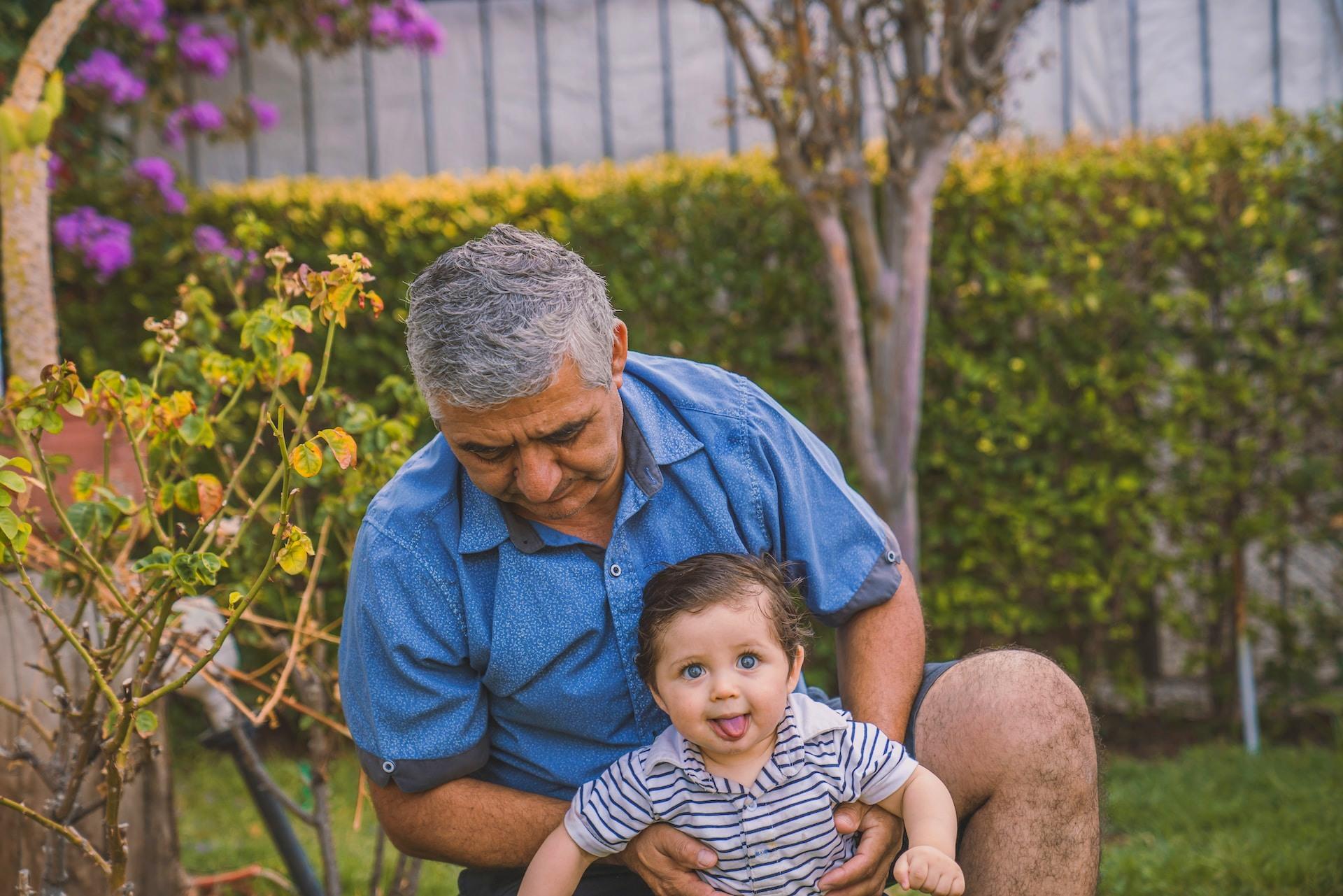Diversity of nations is one of the main treasures of our planet. Each ethnic group has its own characteristics, the combination of which defines their national identity. It, in turn, is built on two key factors: mentality (the hidden format) and character, evident in a person's behavior.
The mentality of the Cypriot population was formed on a modest piece of land in challenging historical realities. The favorable climate of the Mediterranean and the unhurried way of life made Cypriots a long-lived nation. Other peculiarities of the island's natives will be discussed in this blog.
Men and women
Patriarchy prevails in Cyprus. It cannot be said that women are clearly deprived of their rights, but the distribution of responsibilities between the strong and weak genders is quite noticeable. The head of the Cypriot family holds power by definition; he protects and provides for his household. Local men spend most of their time in public, while wives are occupied with raising children and managing the household. Among women, there are those who strive to build a career, but they usually do not hold high positions. On Cyprus, there is still a prohibition for women to visit certain entertainment establishments. Despite the wide development of the feminist movement in the European Union, this progressive wave has not yet reached the island.
The classic portrait of a Cypriot in the working age can be imagined as a business-oriented, organized, cheerful, and slightly conservative person. He is moderately hardworking and will not deny himself the pleasure of enjoying a good rest. Men dress rather modestly, making it difficult to determine their social status by appearance. Married and mature Cypriot women prefer an inconspicuous look with an emphasis on national style, while young Cypriot women like to use bright makeup and create attractive images. The fairer sex takes time to establish contact, but once they feel mutual trust, they become open and highly value friendship. Cypriot youth prefers an active lifestyle, and the island provides all the conditions for it.

Cypriots in communication
Having an informal conversation over a cup of coffee or a glass of wine is a favorite activity of the islanders. They have a natural sense of humor, so jokes and anecdotes are popular and appropriate at any age. The people of Cyprus are sociable and can easily engage in a conversation on any topic, behaving quite emotionally, laughing loudly, and gesturing with their hands. It should not be thought that this behavior indicates a lack of manners or disrespect towards the interlocutor. On the contrary, such conduct speaks of a peaceful disposition and interest in the conversation participants. The concept of "personal space" in Cyprus is blurred. Patting a friend on the shoulder or tapping a neighbor's bag while waiting in line is absolutely ordinary occurrences.
Cypriots like to praise each other for various reasons and do so genuinely. At the same time, they try to avoid criticism, reasonably believing that it is better to remain silent than to spoil someone's mood. The islanders enjoy discussing football, politics, or other hot topics. The discussion may turn into a lively display of emotions, but hostility is out of the question. Besides, Cypriots are quick to reconcile and part ways with an embrace. Cypriot women usually do not take an active part in public gatherings and discussions.
 Lifestyle
Lifestyle
Cypriots try to enjoy every moment of life, which is why they behave in a relaxed and easygoing manner. This behavior is described by the Greek word "siga-siga." For example, they may arrive at work before 7 am, but most shops and offices will close for a "siesta" from 1 pm to 4 pm. In some cases, such a way of life hinders the completion of certain tasks and appointments. Few would appreciate indefinite administrative decisions or waiting for a service employee who "comes" to your house for more than two hours.
Cypriots categorically reject pressure on themselves or demands to hurry, and punctuality is not one of their strong qualities. In practice, the Cypriot lexicon does not contain such concepts as self-esteem and self-criticism. For many foreigners, the measured lifestyle of the island state may seem impossible, but over time, everything becomes a habit.
Local cuisine
The majority of Cypriots love to cook and then leisurely savor their culinary creations, never hurrying to leave the table. Cooking is not a joking matter, and Cypriots treat their recipes seriously. Hospitable hosts will always invite guests to share a meal with them, and in a sign of respect, guests will do so. Meat is an essential ingredient in Cypriot cuisine. It serves as the basis for preparing many traditional dishes, including suvlaki and kleftiko (legend has it that the name comes from the word kleptomania). Additionally, Cypriots prefer to consume various treasures of the Mediterranean. By adding fresh vegetables, fruits, and obligatory olives to their diet, the logical conclusion is that Cypriot national cuisine is tasty, healthy, and diverse.
Visitors from other countries are pleased with the substantial portion sizes in local restaurants. Besides delicious food, Cypriots value their coffee. Men can spend an entire day in their favorite café over a cup of this drink, where they have been regular customers for decades. This is where the local ritual of discussing news and exchanging opinions with friends takes place.

Hospitality
Cypriots are known for their friendliness, hospitality, and smiles. They show boundless warmth to guests, regardless of where they come from, and they themselves love to make visits. A Cypriot native can invite a foreigner he just met a few minutes ago to his home and introduce them to his family. In doing so, the locals, demonstrating their familiar nature, will hug and kiss an almost unfamiliar person. Once a guest becomes friends with the host, they automatically become friends with the whole family. Cypriots are naturally curious and love to ask personal questions as well as inquire about the country their interlocutor comes from. If necessary, hosts are skilled in gathering information about their future guests, reflecting the eastern aspect of their mentality.
Cypriots are happy to show foreigners local attractions, even if it means traveling the entire island, and they proudly introduce them to the history of their country. Cypriots are a musical people and gladly perform traditional dances and songs, even attracting tourists to join in. It is customary to bring a gift when visiting Cyprus, and a dessert or a bottle of wine would be an excellent choice. Being 15-20 minutes late is perfectly acceptable.

Family Relationships
Family holds a special value for every resident of Cyprus – it is a close circle of loved ones always ready to help and provide necessary advice. Elders are respected for their age and wisdom, and family members maintain warm relationships with each other. Family ties are clearly evident even in business, where an owner is more likely to offer a promising position to a beloved nephew rather than an "outsider" specialist. Most men in Cyprus are inclined to marry only once, and the number of guests at local weddings can exceed a thousand. The traditional gift for newlyweds is an envelope with money. The majority of Cypriot families are large, and there is a practical explanation for this: after the birth of the third child, the family is exempt from taxes. However, it's not just a pragmatic approach; Cypriots adore children, who are inherently surrounded by the love and attention of their parents. If a child misbehaves or bothers others in a public place, any remarks usually come in a soft form and only from the parents' mouths.

Cypriot children are exempt from household responsibilities, and mothers try to shield their offspring from physical labor for as long as possible. Cypriots prefer their children to engage in something useful and developmental rather than idly roam the streets. The older generation takes their children to the other end of the island if there is no suitable club or educational institution nearby. Despite the high level of safety, children's walks are under the supervision of their relatives. The school education in Cyprus is of high quality, and then local youth can continue their studies both in local universities and abroad. Most parents in Cyprus expect their children to start their own families before the age of 30 with someone from the same religion; therefore, mixed marriages on the island are extremely rare. Forced unions with a "suitable" candidate contradict the traditions of Cypriot society and are considered a violation of freedom.

Family Budget
Regarding financial matters, Cypriots are quite meticulous and sometimes outright frugal. A housewife, which constitutes the majority on the island, only receives money from her husband for groceries and essential goods. At the same time, she is content that he supports her financially and is obligated to keep track of expenses at his first request. Despite their thriftiness, Cypriots love to give gifts to friends and provide any assistance within their means. By the way, there are almost no beggars in Cyprus: impoverished citizens can rely on decent financial aid from the state.
Cypriots have a high level of national identity. Despite many similarities with Greeks, such as Orthodox Christianity, appearance, language, shared holidays, and traditions, the island's inhabitants consider themselves an independent and sovereign nation. Cypriots take pride in their heritage, culture, and the glorious history of their country.

Interested in real estate on the island? Visit DOM, the number one real estate agency in Cyprus! On the agency's website, you'll find the largest database of properties in the country – over 30,000 residential and commercial properties all over the island. Choose and contact professional brokers who will assist you in making the right choice!
Also, check out these articles:



